Keywords: Homeless
There are more than 200 results, only the first 200 are displayed here.
-

ARTS AND CULTURE
- Juan Garrido-Salgado
- 27 March 2017
1 Comment
Pain is a cold food like garbage left, no compassion ... Compassion, bread and old wine, waste in a temple to worship money and power. Mankind has lost its root system thirst for happiness. Our bread is autumn leaf tossed into the branches as the bird dies. They make wine from the waters of these rivers suffering bloodied by the blood of Syrian children. Wine is the blood of indifference on the streets of Palestine. The wine is the blood of cruelty in Nauru ... why are you silent?
READ MORE 
-

ARTS AND CULTURE
- Tim Kroenert
- 22 March 2017
All stories that deal with time travel will come up against paradoxes. Generally the success of the story will come down to how capably these paradoxes are dealt with, and how consistently with the story's internal logic. Otto Bloom turns on the concept of time as an extension of the physical dimensions. If time is as tangible as physical space, then all events in time are occurring simultaneously. That we perceive time as moving in a particular direction is a feature of our human consciousness.
READ MORE 
-
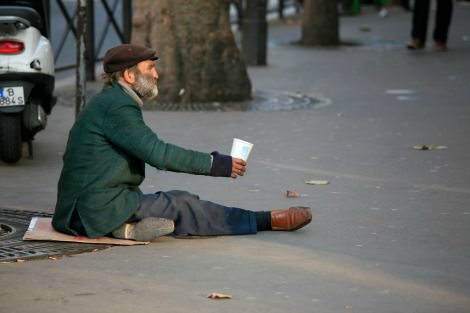
RELIGION
- Andrew Hamilton
- 09 March 2017
27 Comments
We often find ourselves invited to respond to people who ask us for money on the street - beggars, homeless people and so on. We can respond in different ways: give them something, decline as a matter of course, decline as a matter of principle, or not notice them. Last week Pope Francis recommended that we always give coins. To many this will seem to be too categorical. However as has so often been the case, Francis' throwaway lines illuminate much larger social issues.
READ MORE 
-

AUSTRALIA
- Daniel Nicholson
- 24 February 2017
9 Comments
In the footage of one violence protest, I was shocked to see a handful of my homeless clients, draped in Australian flags, engaged in street battles with anti-racists. These young men had experienced alienation, exploitation and poverty - all the things the Left is supposed to fight against. Long, uncomfortable conversations don't make for good social media content, yet if Australia is to stare down the threat of a rising alt-right it won't be done by yelling at right wing fringe groups across a police barricade.
READ MORE 
-

AUSTRALIA
- Ann Deslandes
- 06 February 2017
7 Comments
The recent viral footage of 'alt-right' spokesperson Richard Spencer taking a punch to the chops caused considerable debate. There is no doubting the moral clarity that non-violent resistance achieved in the civil rights movement led by Martin Luther King and the Indian independence movement led by Mahatma Gandhi, and the real result of justice for African American and Indian people. When it comes to the odd individual act of public pushing and shoving, though, asking 'Is it okay?' is a red herring.
READ MORE 
-

RELIGION
- Frank Brennan
- 06 February 2017
17 Comments
Listening to the media and our church leaders in recent days, we know that there is plenty of darkness ahead for our Church in the weeks ahead with the Royal Commission's so-called 'Catholic wrap-up'. We're told that the statistics will be terrible and we expect that some of our church leaders will appear, looking stunned and helpless. This morning, I think we need to reflect on these stark realities in the light of the scriptures. And this can be done only by holding the victims clearly in focus.
READ MORE
-
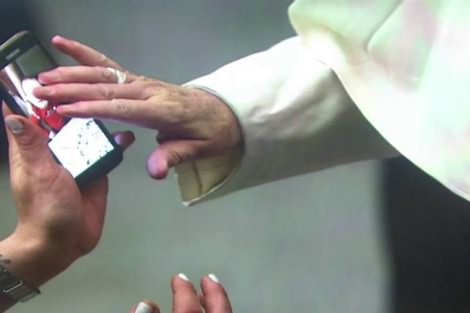
AUSTRALIA
- Michael McVeigh
- 20 January 2017
7 Comments
Many have called for the automated Centrelink debt collection system to be scrapped, but the government is standing by it. One of the reasons for this may be that the system is doing just what it's designed to do - trying to force people away from welfare reliance by making it more onerous. Pope Francis argues that far from a 'neutral' tool, technology creates a framework which conditions people and limits their possible options along lines dictated by the most economically and politically powerful.
READ MORE 
-

ARTS AND CULTURE
- Sarah Klenbort
- 13 December 2016
5 Comments
I will always remember the first time I saw Giacommeti's statues in in Europe. They were grotesquely thin, elongated people. Giacometti explained how he tried to make people with more flesh, but after World War II and the six million, it was impossible. And so those statues reflect the time he lived in. Queensland's Gallery of Modern Art, on the other hand, is celebrating its tenth anniversary, and has chosen fairy floss and rainbow fuzz to reflect our current society.
READ MORE 
-

ARTS AND CULTURE
- Marlene Marburg
- 05 December 2016
5 Comments
Please god of the fit and strong, forbid we should become 'the un-lucky country'. Help us to conjure the nerve to say, There is no room for you here in Australia. No vacancies. All full up. You will be turned away while you are trying to give your family respite from poverty or war. We have no room for you. We are using our space for shops. And Christmas trees.
READ MORE 
-
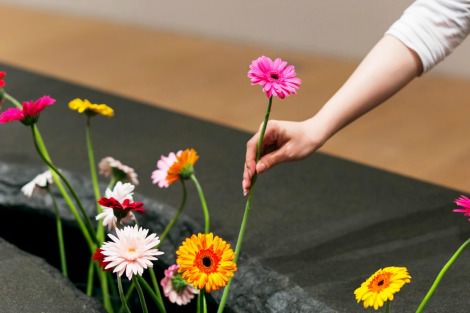
ARTS AND CULTURE
- Maureen O'Brien
- 22 November 2016
5 Comments
Recently I went with a group of friends to see the musical Dusty. Afterwards, walking with one of my friends, I spoke about how special it had turned out for me seeing this musical on the day after my 54th wedding anniversary. Dusty Springfield's songs were ones my husband and I would have known well at the time. Just as I was reflecting on how some events have more significance than what appears on the surface, a young man on my right turned to me and handed me a large red flower.
READ MORE 
-
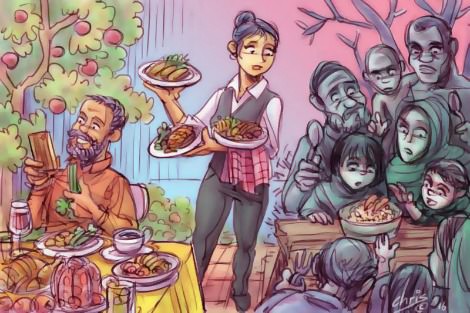
AUSTRALIA
- Julie Edwards
- 17 October 2016
17 Comments
One of the most misused passages of Christian scripture tells us we shall always have the poor with us. It is often repeated by those who are not poor in order to dismiss any project that involves public expenditure or private generosity to people who are poor. When we do not focus on the good or bad conscience of the observer but on the lives of the people who are poor, we can see that the statement is not a justification for a modern society that allows people to live in poverty. It is an indictment.
READ MORE 
-
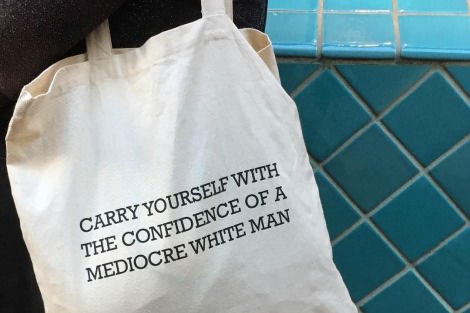
AUSTRALIA
- Fatima Measham
- 05 September 2016
5 Comments
Unless feminism abandons its individualistic, secular, western framing of freedom, it cannot presume to liberate all women. Some of its recent concerns give away limitations: whether this politician identifies as feminist, whether child-raising is self-sabotage, whether women abandon autonomy when they take their husband's name. I wonder sometimes whether it is ever possible to talk about sexual exploitation of women in Asia without getting entangled in sex positivity and legal sex work.
READ MORE 